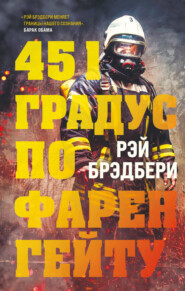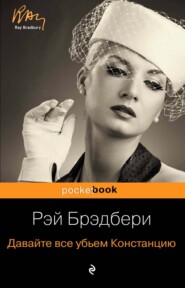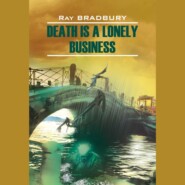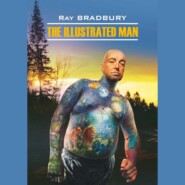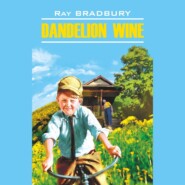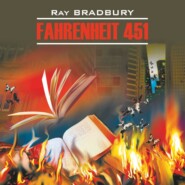По всем вопросам обращайтесь на: info@litportal.ru
(©) 2003-2024.
✖
Golden Apples of the Sun
Автор
Год написания книги
2018
Настройки чтения
Размер шрифта
Высота строк
Поля
“And they’re not sure what it’ll do to anything, really, when it happens?”
“No, not sure.”
“Why didn’t we stop them before it got this far and this big?”
“It’s twice as big as ever before. No, ten times, maybe a thousand.”
“This isn’t like the first one or the dozen later ones. This is different. Nobody knows what it might do when it comes.”
They waited on the porch in the smell of roses and cut grass. “What time is it now?”
“One minute to five.”
The needles flashed silver fire. They swam like a tiny school of metal fish in the darkening summer air.
Far away a mosquito sound. Then something like a tremor of drums. The three women cocked their heads, listening.
“We won’t hear anything, will we?”
“They say not.”
“Perhaps we’re foolish. Perhaps we’ll go right on, after five o’clock, shelling peas, opening doors, stirring soups, washing dishes, making lunches, peeling oranges.... ”
“My, how we’ll laugh to think we were frightened by an old experiment!” They smiled a moment at each other.
“It’s five o’clock.”
At these words, hushed, they all busied themselves. Their fingers darted. Their faces were turned down to the motions they made. They made frantic patterns. They made lilacs and grass and trees and houses and rivers in the embroidered cloth. They said nothing, but you could hear their breath in the silent porch air.
Thirty seconds passed.
The second woman sighed finally and began to relax.
“I think I just will go shell those peas for supper,” she said. “I—”
But she hadn’t time even to lift her head. Somewhere, at the side of her vision, she saw the world brighten and catch fire. She kept her head down, for she knew what it was. She didn’t look up, nor did the others, and in the last instant their fingers were flying; they didn’t glance about to see what was happening to the country, the town, this house, or even this porch. They were only staring down at the design in their flickering hands.
The second woman watched an embroidered flower go. She tried to embroider it back in, but it went, and then the road vanished, and the blades of grass. She watched a fire, in slow motion almost, catch upon the embroidered house and unshingle it, and pull each threaded leaf from the small green tree in the hoop, and she saw the sun itself pulled apart in the design. Then the fire caught upon the moving point of the needle while still it flashed; she watched the fire come along her fingers and arms and body, untwisting the yarn of her being so painstakingly that she could see it in all its devilish beauty, yanking out the pattern from the material at hand. What it was doing to the other women or the furniture or the elm tree in the yard, she never knew. For now, yes, now! it was plucking at the white embroidery of her flesh, the pink thread of her cheeks, and at last it found her heart, a soft red rose sewn with fire, and it burned the fresh, embroidered petals away, one by delicate one....
The Big Black and White Game (#ulink_540d8626-8d17-5460-a76f-bcff7cf296fb)
The people filled the stands behind the wire screen, waiting. Us kids, dripping from the lake, ran between the white cottages, past the resort hotel, screaming, and sat on the bleachers, making wet bottom marks. The hot sun beat down through the tall oak trees around the baseball diamond. Our fathers and mothers, in golf pants and light summer dresses, scolded us and made us sit still.
We looked toward the hotel and the back door of the vast kitchen, expectantly. A few colored women began walking across the shade-freckled area between, and in ten minutes the far left section of the bleachers was mellow with the color of their fresh-washed faces and arms. After all these years, whenever I think back on it, I can still hear the sounds they made. The sound on the warm air was like a soft moving of dove voices each time they talked among themselves.
Everybody quickened into amusement, laughter rose right up into the clear blue Wisconsin sky, as the kitchen door flung wide and out ran the big and little, the dark and high-yellar uniformed Negro waiters, janitors, bus boys, boatmen, cooks, bottle washers, soda jerks, gardeners, and golf-links tenders. They came capering, showing their fine white teeth, proud of their new red-striped uniforms, their shiny shoes rising and coming down on the green grass as they skirted the bleachers and drifted with lazy speed out on the field, calling to everybody and everything.
Us kids squealed. There was Long Johnson, the lawn-cutting man, and Cavanaugh, the soda-fountain man, and Shorty Smith and Pete Brown and Jiff Miller!
And there was Big Poe! Us kids shouted, applauded!
Big Poe was the one who stood so tall by the popcorn machine every night in the million-dollar dance pavilion farther down beyond the hotel on the lake rim. Every night I bought popcorn from Big Poe and he poured lots of butter all over it for me.
I stomped and yelled, “Big Poe! Big Poe!”
And he looked over at me and stretched his lips to bring out his teeth, waved, and shouted a laugh.
And Mama looked to the right, to the left, and back of us with worried eyes and nudged my elbow. “Hush,” she said. “Hush.”
“Land, land,” said the lady next to my mother, fanning herself with a folded paper. “This is quite a day for the colored servants, ain’t it? Only time of year they break loose. They look forward all summer to the big Black and White game. But this ain’t nothing. You seen their Cakewalk Jamboree?”
“We got tickets for it,” said Mother. “For tonight at the pavilion. Cost us a dollar each. That’s pretty expensive, I’d say.”
“But I always figure,” said the woman, “once a year you got to spend. And it’s really something to watch them dance. They just naturally got …”
“Rhythm,” said Mother.
“That’s the word,” said the lady. “Rhythm. That’s what they got. Land, you should see the colored maids up at the hotel. They been buying satin yardage in at the big store in Madison for a month now. And every spare minute they sit sewing and laughing. And I seen some of the feathers they bought for their hats. Mustard and wine ones and blue ones and violet ones. Oh, it’ll be a sight!”
“They been airing out their tuxedos,” I said. “I saw them hanging on lines behind the hotel all last week!”
“Look at them prance,” said Mother. “You’d think they thought they were going to win the game from our men.”
The colored men ran back and forth and yelled with their high, fluting voices and their low, lazy, interminable voices. Way out in center field you could see the flash of teeth, their upraised naked black arms swinging and beating their sides as they hopped up and down and ran like rabbits, exuberantly.
Big Poe took a double fistful of bats, bundled them on his huge bull shoulder, and strutted along the first-base line, head back, mouth smiling wide open, his tongue moving, singing:
“—gonna dance out both of my shoes,
When they play those Jelly Roll Blues;
Tomorrow night at the Dark Town Strutters’ Ball!”
Up went his knees and down and out, swinging the bats like musical batons. A burst of applause and soft laughter came from the left-hand grandstands, where all the young, ripply colored girls with shiny brown eyes sat eager and easy. They made quick motions that were graceful and mellow because, maybe, of their rich coloring. Their laughter was like shy birds; they waved at Big Poe, and one of them with a high voice cried,, “Oh, Big Poe! Oh, Big Poe!”
The white section joined politely in the applause as Big Poe finished his cakewalk. “Hey, Poe!” I yelled again.
“Stop that, Douglas!” said Mother, straight at me.
Now the white men came running between the trees with their uniforms on. There was a great thunder and shouting and rising up in our grandstand. The white men ran across the green diamond, flashing white.
“Oh, there’s Uncle George!” said Mother. “My, doesn’t he look nice?” And there was my Uncle George toddling along in his outfit which didn’t quite fit because Uncle has a potbelly, and jowls that sit out over any collar he puts on. He was hurrying along, trying to breathe and smile at the same time, lifting up his pudgy little legs. “My, they look so nice,” enthused Mother.
I sat there, watching their movements. Mother sat beside me, and I think she was comparing and thinking, too, and what she saw amazed and disconcerted her. How easily the dark people had come running first, like those slow-motion deer and buck antelopes in those African moving pictures, like things in dreams. They came like beautiful brown, shiny animals that didn’t know they were alive, but lived. And when they ran and put their easy, lazy, timeless legs out and followed them with their big, sprawling arms and loose fingers and smiled in the blowing wind, their expressions didn’t say, “Look at me run, look at me run!” No, not at all. Their faces dreamily said,, “Lord, but it’s sure nice to run. See the ground swell soft under me? Gosh, I feel good. My muscles are moving like oil on my bones and it’s the best pleasure in the world to run.” And they ran. There was no purpose to their running but exhilaration and living.
The white men worked at their running as they worked at everything. You felt embarrassed for them because they were alive too much in the wrong way. Always looking from the corners of their eyes to see if you were watching. The Negroes didn’t care if you watched or not; they went on living, moving. They were so sure of playing that they didn’t have to think about it anymore.
“My, but our men look so nice,” said my mother, repeating herself rather flatly. She had seen, compared the teams. Inside, she realized how laxly the colored men hung swaying in their uniforms, and how tensely, nervously, the white men were crammed, shoved, and belted into their outfits.






